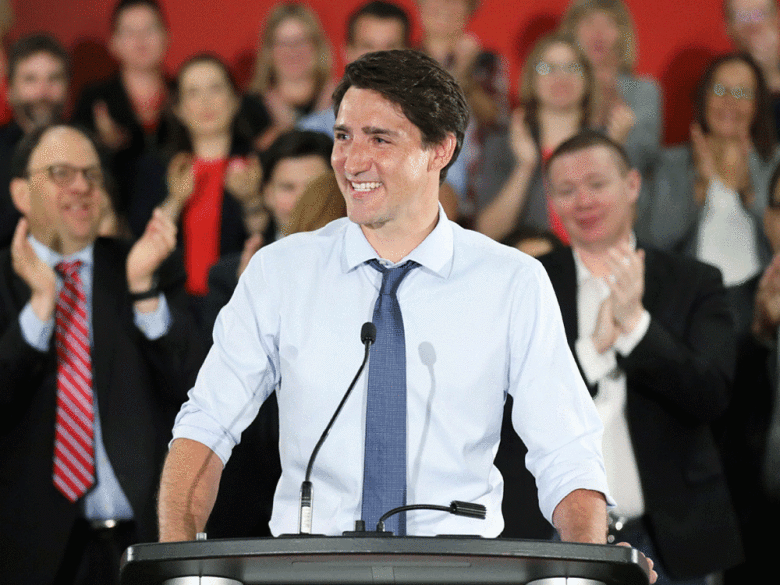Deaf to Alberta and Saskatchewan for four years, Justin Trudeau wants us to believe his hearing is suddenly restored.
The Liberals won no seats in the main energy provinces. Now the prime minister, reduced to a minority, yearns to listen and understand.
But his sop to westerners — engaging an advisor who happens to be Liberal — is flatly absurd, and not to be trusted.
History is alarmingly suggestive.
In February 1980, Trudeau’s father, Pierre, won a Liberal majority with no seats west of Winnipeg.
In July that year the Liberals held their national convention in Winnipeg, with many vows of friendship to the West. Pierre Trudeau made some of them to me personally in an interview.
In late August 1980, the Liberal cabinet met in Lake Louise and the ministers discussed a secret strategy to divide the provinces over resource development and national unity.
That plan was leaked, causing no end of embarrassment.
But something else was discussed in Lake Louise, too. The subject became clear on Oct. 28, 1980, when Ottawa introduced the National Energy Program.
It was a unilateral effort to nationalize aspects of the industry and lure exploration outside Alberta using tax incentives, with Ottawa grabbing a huge share of revenues.
That led to massive economic damage in Alberta, years of bitter conflict and finally a hard-won settlement for Alberta.
And it started right after the Liberals, wiped out in the West, uttered fine words of understanding.
Today Justin Trudeau has no seats between Winnipeg and Vancouver.

His minority is potentially backed by three parties — the Greens, NDP and Bloc Quebecois — that want to shut down the oil and gas industry.
The situation is arguably even more dangerous than it was in 1980.
Back then, the quarrel was over who got the money. Today, it’s about the industry’s very existence.
Since the election, Trudeau has stated firmly that he will build the Trans Mountain pipeline expansion.
But in order to stay in office, he might be forced to make deals with the anti-industry opposition. NDP Leader Jagmeet Singh, for instance, is fiercely opposed to the pipeline.
An anti-industry win may be required — something big enough to appease his base.
What might it be? Emissions rules to force accelerated shutdown of the oilsands? New amendments to Bill C-69, ensuring that no new cross-border pipelines could ever be built?
We don’t know, of course. No more than Albertans had a clue what was coming in October 1980.
For the moment, Justin Trudeau — just like his dad — is trying to calm us down. He wants western advice.
He engaged the unpaid help of former Liberal minister Anne McLellan, who has been a solid defender of Alberta’s economic interests.

But this doesn’t even qualify as tokenism.
After the 2015 election Trudeau had five Alberta and Saskatchewan MPs, three of them ministers, who could have kept him informed.
There was also thunderous public advice in Senate hearings from former Premier Rachel Notley and her successor, Jason Kenney.
Former Saskatchewan Premier Brad Wall has been relentless. New Premier Scott Moe is no less vigorous.
But the Liberals pushed through Bill C-48, the Tanker Moratorium, perhaps better titled the Alberta Petroleum Product Boycott.
They amended Bill C-69, but not to the point where many industry people believe any pipeline will be built after the Trans Mountain expansion — if that ever happens.
And there was that moment in the leaders’ French debate when Trudeau promised to fight Kenney, Ontario Premier Doug Ford “et les petroliers qui les appuient” (the oil types who support them.)
This was a growing theme in the election campaign — that the industry is not just environmentally undesirable, but illegitimate.
Trudeau ignored western advice and anger from election night 2015 until election night 2019.
Why would he start listening now, faced with a solid phalanx of opposition members who want no concessions at all?

Personally, I was appalled when Alberta Justice Minister Doug Schweitzer called Calgary Mayor Naheed Nenshi “Trudeau’s mayor.”
It was a cheap personal shot. Nenshi has always been a solid industry defender.
But Schweitzer’s emotional outburst accurately reflected the UCP’s burning mistrust of Trudeau. The reasons go back a long way.
Don Braid’s column appears regularly in the Herald.
Twitter: @DonBraid
Facebook: Don Braid Politics





























